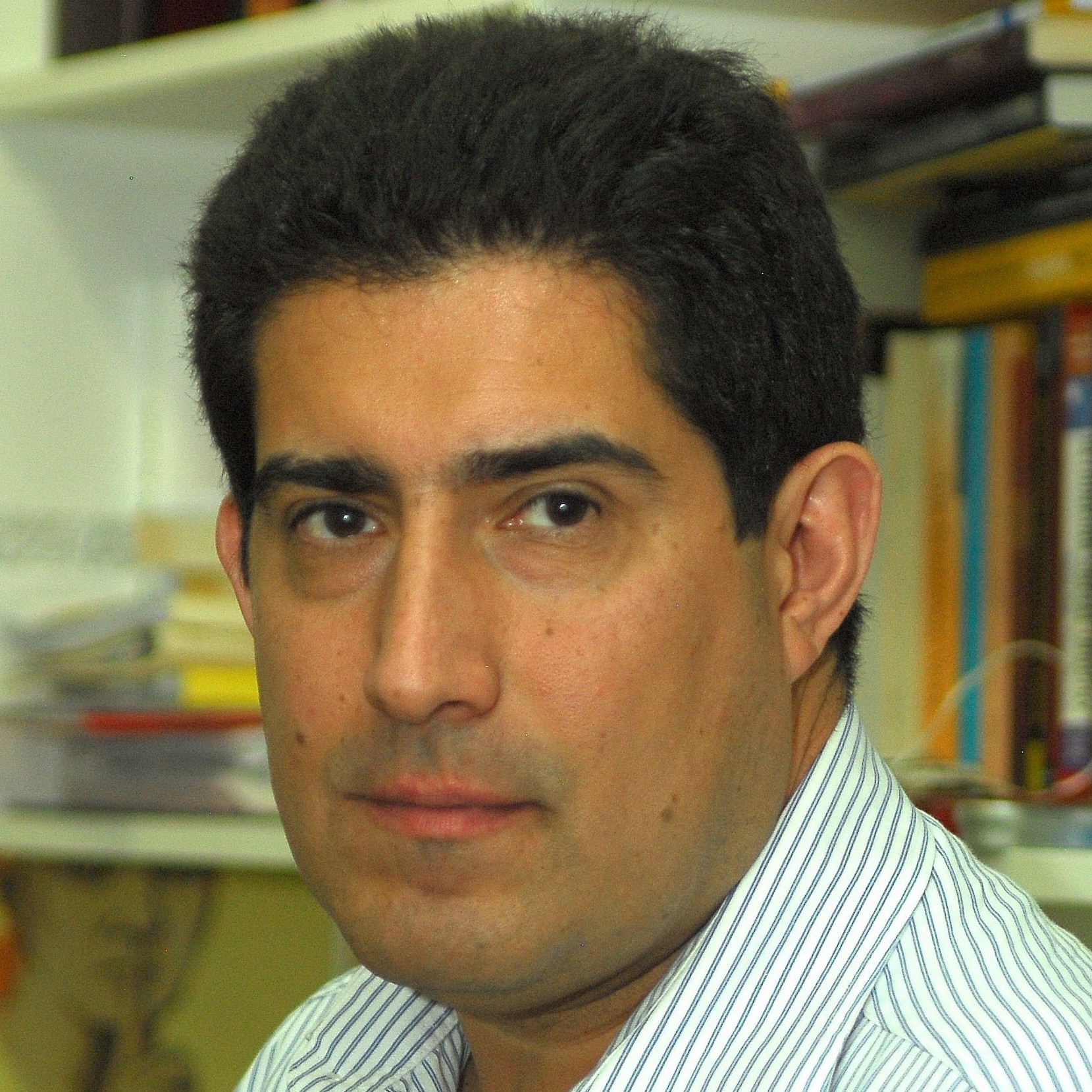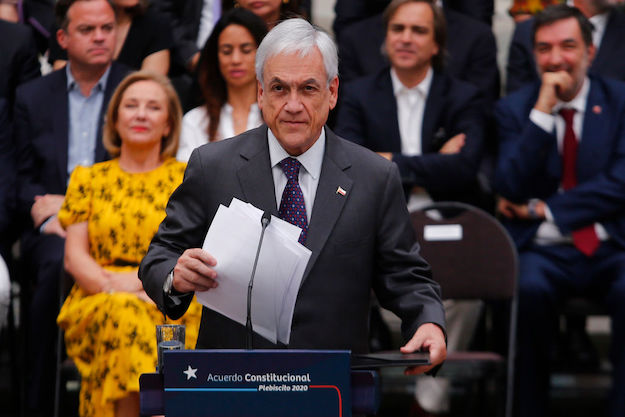In last week’s presidential primaries, Chilean voters followed the dominant trend in Latin America and signaled that they are ready to hand power back to Sebastián Piñera, a center-right market-friendly former president (2010-2014). If Piñera wins the general election in November, Chile will complete an unprecedented 16- year run under only two democratically elected leaders – Michelle Bachelet (2006-2010, 2014-2018) and Piñera.
This would be partly a consequence of Chile’s Constitution, which forbids presidents from serving consecutive terms but allows them to serve again. But it’s also a sign that, despite a slowing economy and general dissatisfaction with the political class, most Chileans seem inclined to opt for stability and continuity instead of a radical change of course.
Chile’s optional primary system saw two different coalitions voting on July 2 to define their presidential candidate. Turnout was low (1.7 million, or 13 percent of eligible voters) on a cold wintry Sunday, and outgoing President Bachelet’s center-left Nueva Mayoría coalition chose not to participate because of its own internal dynamics. That said, Piñera received one of every two votes cast – and eight in every 10 votes cast were for right-of-center candidates.
Not all the news for Piñera was good. His center-right Chile Vamos coalition received only about a third as many votes as the Nueva Mayoría did in 2013 primaries – indicating a possible enthusiasm gap. He also won the primary with 58 percent – a comfortable victory, but a narrower one than Bachelet’s in 2013, when she received 75 percent.
Voting saw the debut of an alternative leftwing coalition, the Frente Amplio (FA, or Broad Front), whose two candidates received a combined vote of 327,000. The FA winner, former journalist Beatriz Sánchez campaigned highlighting all what is wrong in Chile today and promised deep reforms to drastically alter the market-friendly roadmap that Nueva Mayoría (formerly known as Concertación) and Chile Vamos governments have championed since democracy was restored in 1990. Though Sánchez interpreted her 67.5 to 32.5% victory over her FA challenger as a confirmation of her leadership among the radical left, the timid turnout for her coalition signals that Chileans prefer to back candidates who want to fix what is wrong with Chile, not those who seek to implement a new state-led economic model.
The absence of Nueva Mayoría from the presidential primaries can be interpreted in different ways. As center-left voters did not have a choice, turnout declined compared to 2013. Many Nueva Mayoría supporters opted to stay at home and watch Chile play against Germany in the final game of the Confederation Cup. The reason Nueva Mayoría opted out reflects the difficult times that President Bachelet and her coalition are experiencing.
The leading presidential hopeful in Nueva Mayoría is former television anchorman and freshman Senator (since 2014) Alejandro Guillier. The 64-year old Guillier has been endorsed by the three Nueva Mayoría leftist parties, including President Bachelet’s Socialist Party. But the largest Nueva Mayoría partner, the centrist Christian Democratic Party (PDC), supports Senator Carolina Goic. Having entered the race shortly before the deadline for the presidential primaries, the 44-year old Goic, who is also the PDC president, pushed her party to bypass the primaries and is threatening to break the Nueva Mayoría coalition by filing an alternative legislative and presidential slate for November. Though there are ongoing negotiations between Nueva Mayoría parties to run as a unified coalition, the primaries have passed and the coalition still does not have a single candidate – and no mechanism to democratically select one.
Vote intention polls give Guillier an edge, as his support stands in the low 20s. Goic is polling in the single digits. But Guillier’s support has been slipping since he peaked in January and he has proven to be far less effective as a candidate than some hoped. As Guillier is losing steam, Goic hopes she will pick up more support in the coming weeks. But two months after entering the race, Goic is doing far worse than Guillier. Thus, many in Nueva Mayoría want the leading parties of the coalition to agree on a single candidate to avoid further fragmentation of the vote and to be more competitive against Piñera. Yet, it does not seem that either Guillier or Goic have what it takes to mount a credible challenge against Piñera in the election.
Some in Nueva Mayoría are looking for alternatives. Former President Ricardo Lagos (2000-2006), who withdrew from the race in April, when his party, the Party for Democracy, opted to support Guillier, might throw his hat back onto the ring. Yet, the 79-year old Lagos is not very popular, especially with younger voters who are looking for new faces. After all, Lagos withdrew because he was not doing too well in polls to begin with.
As Nueva Mayoría searches for a candidate who can be competitive against Piñera, the real problem might have to do with the structural conditions faced by the Chilean economy. After Michelle Bachelet overwhelmingly won in 2013 promising to redistribute growth, expand opportunity and combat inequality, the mood in 2017 has drastically changed. With an economy that barely grows, stagnant wages and unemployment at 7 percent, Chileans seem to be looking for a leader who can put the country back on the right track rather than one who promises to redistribute growth. The electoral appeal of the left has vanished as people’s priorities have shifted.
To be sure, in the months ahead of the November first round vote, leftwing candidates will have an opportunity to articulate a message that combines a focus on reducing inequality with a pro-growth message. If they do so, the left candidate might be competitive against Piñera. Yet, if they continue to favor redistribution over growth, the Chilean left will follow the rest of the Latin American left on the path to a resounding electoral defeat in November.
—
Navia is a contributing columnist for Americas Quarterly, professor of liberal studies at NYU and professor of political science at Diego Portales University in Chile.








